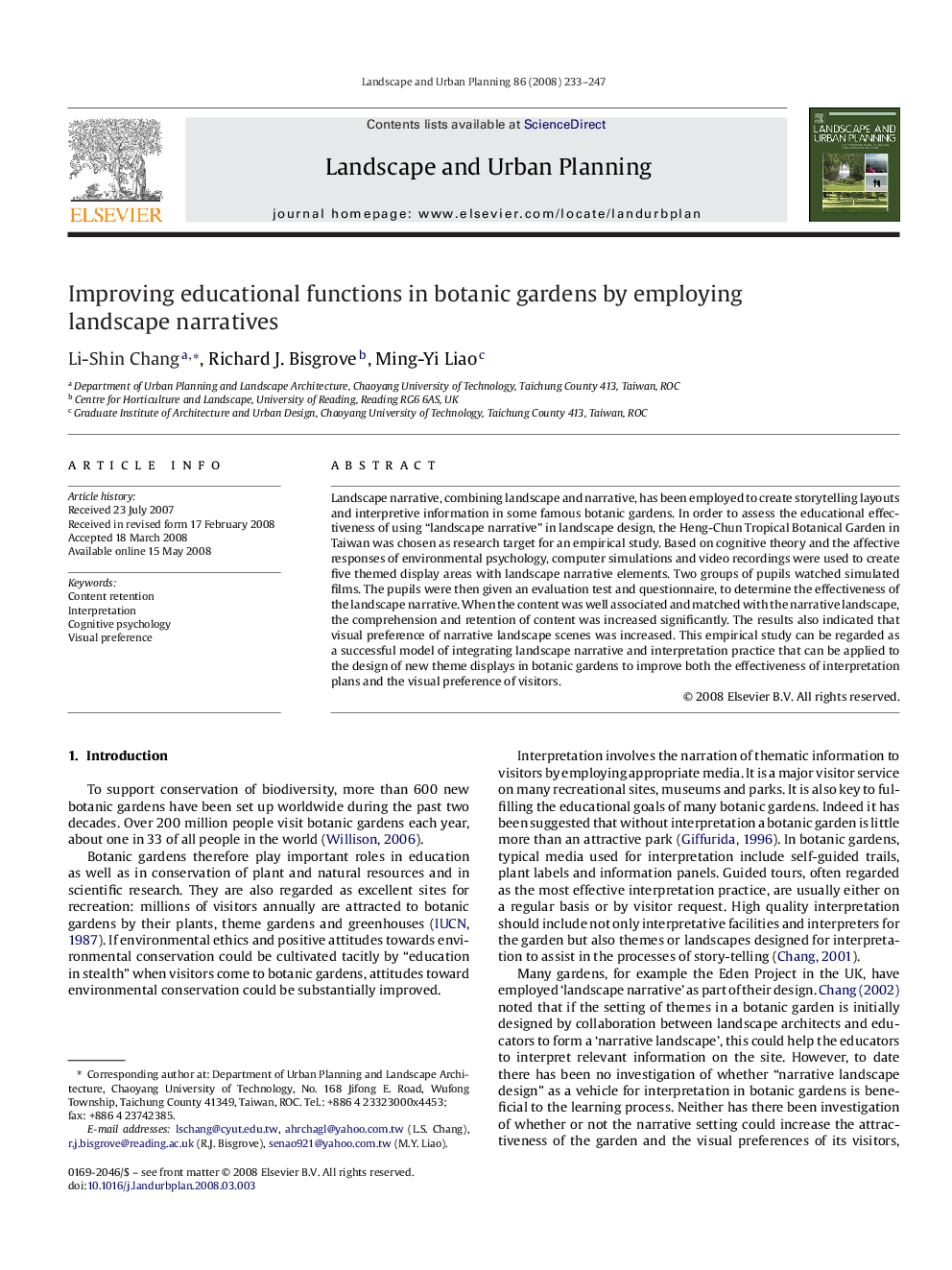| Article ID | Journal | Published Year | Pages | File Type |
|---|---|---|---|---|
| 1050104 | Landscape and Urban Planning | 2008 | 15 Pages |
Landscape narrative, combining landscape and narrative, has been employed to create storytelling layouts and interpretive information in some famous botanic gardens. In order to assess the educational effectiveness of using “landscape narrative” in landscape design, the Heng-Chun Tropical Botanical Garden in Taiwan was chosen as research target for an empirical study. Based on cognitive theory and the affective responses of environmental psychology, computer simulations and video recordings were used to create five themed display areas with landscape narrative elements. Two groups of pupils watched simulated films. The pupils were then given an evaluation test and questionnaire, to determine the effectiveness of the landscape narrative. When the content was well associated and matched with the narrative landscape, the comprehension and retention of content was increased significantly. The results also indicated that visual preference of narrative landscape scenes was increased. This empirical study can be regarded as a successful model of integrating landscape narrative and interpretation practice that can be applied to the design of new theme displays in botanic gardens to improve both the effectiveness of interpretation plans and the visual preference of visitors.
